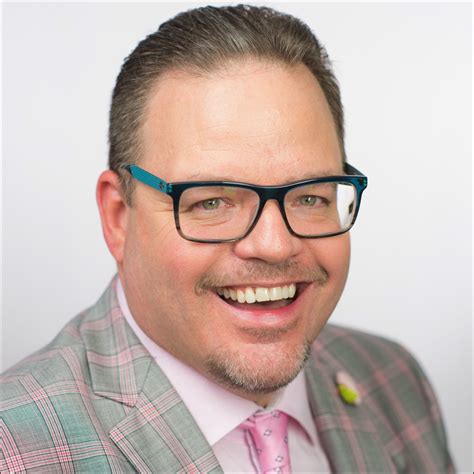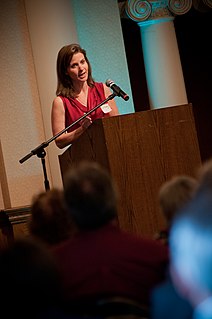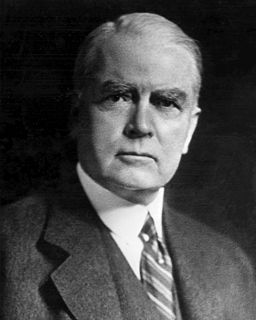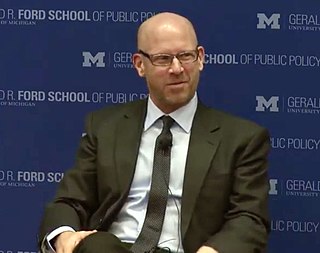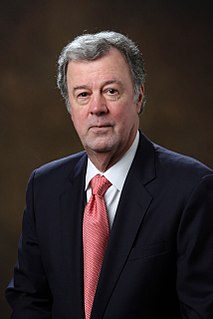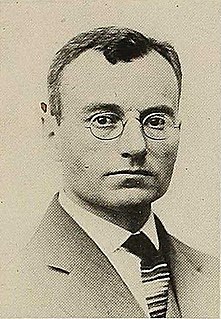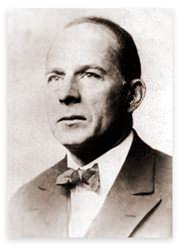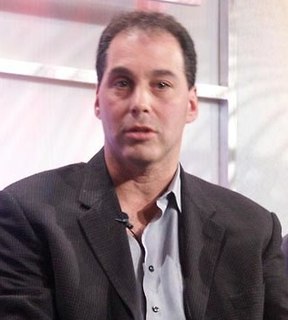Top 1200 Social Ostracism Quotes & Sayings - Page 18
Explore popular Social Ostracism quotes.
Last updated on December 2, 2024.
The dominant, almost general, idea of revolution - particularly the Socialist idea - is that revolution is a violent change of social conditions through which one social class, the working class, becomes dominant over another class, the capitalist class. It is the conception of a purely physical change, and as such it involves only political scene shifting and institutional rearrangements
I'm a person who acknowledges reality. I don't get up every morning and ask myself: What would I do differently if I were chancellor in a black-and-yellow (Christian Democrat and Free Democrat) coalition? The SPD (Social Democratic Party) and the (Christian Democrat and Christian Social) Union stand to weaken their own positions if they don't make this coalition a success. And we both want success.
The only weapon we have to oppose the bad effects of technology is technology itself. There is no other. We can't retreat into a nontechnological Eden which never existed...It is only by the rational use of technology to control and guide what technology is doing that we can keep any hopes of a social life more desireable than our own: or in fact of a social life which is not appalling to imagine.
Oliver Wendell Holmes said, "Think things, not words." In words, many see a need for "social justice" to override "the dictates of the market." In reality, what is called "the market" consists of human beings making their own choices at their own cost. What is called "social justice" is government imposition of the notions of third parties, who pay no price for being wrong.
My passionate sense of social justice and social responsibility has always contrasted oddly with my pronounced lack of need for direct contact with other human beings and human communities. I am truly a 'lone traveler' and have never belonged to my country, my home, my friends, or even my immediate family, with my whole heart; in the face of all these ties, I have never lost a sense of distance and a need for solitude.
A girl's social networking profile is a persona she constructs, a photoshopped billboard on the information superhighway. It also offers a salve for the anxiety so many girls feel about relationships, providing the answers to burning social questions like, What do other people think of me? Do people like me? Am I normal? Am I popular? Am I cool?
I want to utilize social media to elevate the consciousness of those people who feel like all they want from social media is to be famous. Like, you can actually be a voice. You can actually say something that's inspiring and not just make people feel like you need to buy things and be a certain way.
Satyagraha means insistence on what one knows to be the truth. The insistence implies the exercise of free will as the need of social obligation. If one is content to know the truth himself, he does not become a votary of Satyagraha. A Satyagrahi should not only know the truth but should insist upon it in social relations. So Satyagraha is activation of truthfulness.
Some people seem to believe that for each problem there is a solution readily available - a solution that can be promptly achieved by passing a law and voting some money. I think of this as the vending machine concept of social change. Put a coin in the machine and out comes a piece of candy. If there is a social problem, pass a law and out comes a solution.
The aim of life is no more to control the mind, but to develop it harmoniously; not to achieve salvation here after, but to make the best use of it here below; and not to realise truth, beauty and good only in contemplation, but also in the actual experience of daily life; social progress depends not upon the ennoblement of the few but on the enrichment of democracy; universal brotherhood can be achieved only when there is an equality of opportunity - of opportunity in the social, political and individual life.
Films can't change the society, they can simply open the space for the discussion which can lead to social change and can start new forms of social activism. I feel formally that I've scratched the surface of something very important about the nature of nonfiction film, about what we're very rarely honest about: When you film anybody, they start performing.
Social media is a great way to get customers. Time is money. If you do this right, it costs money. But social media is great because you put stuff out there and see if it works almost immediately. You can test to see if it will be effective for your company. It's easy if you hit a nerve and talk about something people are interested in. It's easy for them to share with their friends.
They know your name, address, telephone number, credit card numbers, who ELSE is driving the car "for insurance", ... your driver's license number. In the state of Massachusetts, this is the same number as that used for Social Security, unless you object to such use. In THAT case, you are ASSIGNED a number and you reside forever more on the list of "weird people who don't give out their Social Security Number in Massachusetts."
Our Government understands that local, community organizations are essential in addressing social issues like economic development, poverty, education and integration in Canadian communities. The Community and College Social Innovation Fund will connect the innovative talent of researchers and students at colleges and polytechnics to meet the research needs of local community organizations to build stronger, safer, healthier communities.
The enormous social change involved in a sexual revolution is basically a matter of altered consciousness, the exposure and elimination of social and psychological realities underlying political and cultural structures. We are speaking, then, of a cultural revolution, which, while it must necessarily involve the political and economic reorganization traditionally implied by the term revolution, must go far beyond this as well.
Much of the social history of the Western world over the past three decades has involved replacing what worked with what sounded good. In area after area - crime, education, housing, race relations - the situation has gotten worse after the bright new theories were put into operation. The amazing thing is that this history of failure and disaster has neither discouraged the social engineers nor discredited them.
Instead of recognizing the State as ‘the common enemy of all well-disposed, industrious and decent men,’ the run of mankind, with rare exceptions, regards it not only as a final and indispensable entity, but also as, in the main, beneficent. The mass-man, ignorant of its history, regards its character and intentions as social rather than anti-social; and in that faith he is willing to put at its disposal an indefinite credit of knavery, mendacity and chicane, upon which its administrators may draw at will.
This is what class warfare looks like: The Business Roundtable - representing Goldman Sachs, Bank of America, JP Morgan Chase and others - has called on Congress to raise the eligibility age of Social Security and Medicare to 70, cut Social Security and veterans' COLAs, raise taxes on working families and cut taxes for the largest corporations in America.
The world is full of people who have lost faith: politicians who have lost faith in politics, social workers who have lost faith in social work, schoolteachers who have lost faith in teaching and, for all I know, policemen who have lost faith in policing and poets who have lost faith in poetry. It's a condition of faith that it gets lost from time to time, or at least mislaid.
There are those, on the one hand, who hope to achieve the social revolution through the State by preserving and even extending most of its powers to be used for the revolution. And there are those like ourselves who see the State, both in its present form, in its very essence, and in whatever guise it might appear, an obstacle to the social revolution, the greatest hindrance to the birth of a society based on equality and liberty, as well as the historic means designed to prevent this blossoming.
A religion true to its nature must also be concerned about man's social conditions....A ny religion that professes to be concerned with the souls of men and is not concerned with the slums that damn them, the economic conditions that strangle them, and the social conditions that cripple them is a dry-as-dust religion.
I think the greatest work in social psychology from the 1950s and '60s is enormously important. I wish every high school kid could take a course in social psychology. I think we're making enormous strides in understanding the brain. These aren't yet giving us great insights, but I feel like we're on the verge of it. In five or ten years this basically searching the brain is really going to change things.
If the churches ever did reunite, it would have to be into something that was as sacramental and liturgical and authoritative as the Roman Catholic Church and as protesting against abuses and as much focused on the individual in his direct relationship with Christ as the Evangelicals, as charismatic as the Pentecostals, as missionary-minded as the old mainline denominations, as focused on holiness as the Methodists or the Quakers, as committed to the social aspects of the Gospel as the social activists, as Biblical as fundamentalists, and as mystical as the Eastern Orthodox.
We have to accept that capitalism is coming to an end. We can't provide paid employment for people, all the industries with technology are counter-intuitive to profit, and we have to have a transition to the conceptualist society. The only way to do it fairly is as a social democracy, a radical social democracy, which isn't compromised by neo-liberalism and isn't compromised by the rich, and isn't compromised by hegemonic, authoritarian interests: to have that balance between the government, the private sector, and then the individual citizens again.
Rather than protecting music as a sublimely meaningless activity that has managed to escape social signification, I insist on treating it as a medium that participates in social formation by influencing the ways we perceive our feelings, our bodies, our desires, our very subjectivities - even if it does so surreptitiously, without most of us knowning how. It is too important a cultural force to be shrouded by mystified notions of Romantic transcendence.
All media work us over completely. They are so pervasive in their personal, political, economic, aesthetic, psychological, moral, ethical, and social consequences that they leave no part of us untouched, unaffected, unaltered. The medium is the message. Any understanding of social and cultural change is impossible without a knowledge of the way media work as environments. All media are extensions of some human faculty - psychic or physical.
I see a world in the future in which we understand that all life is related to us and we treat that life with great humility and respect. I see us as well as social creatures, and when I began to look back and say, ‘what is the fundamental bottom line for us as social creatures?’I couldn’t believe it because it seemed so hippy dippy, but it was Love. Love is the force that makes us fully human.
In the early 1970s, Milton Friedman argued that corporations should not be socially responsible because they had no mandate to be; they existed to make money, not to be charitable institutions. But in the economy of the 21st century, corporations cannot be socially responsible, if social responsibility is understood to mean sacrificing profits for the sake of some perceived social good. That's because competition has become so much more intense.
The protection of a ten-year-old girl from her father's advances is a necessary condition of social order, but the protection of the father from temptation is a necessary condition of his continued social adjustment. The protections that are built up in the child against desire for the parent become the essential counterpart to the attitudes in the parent that protect the child.
Not only does a journey transport us over enormous distances, it also causes us to move a few degrees up or down in the social scale. It displaces us physically and also for better or for worse takes us out of our class context, so that the colour and flavour of certain places cannot be dissociated from the always unexpected social level on which we find ourselves in experiencing them.
Social movements throughout history take place in people's minds. If we got 5,000 Americans who were talking about climate change to their neighbors and to their coworkers, and talking about this pledge, that would change the political and social landscape so much more than if 5,000 people got arrested for protesting a pipeline.
The Social Citizen is the best, most thorough, and most methodologically sophisticated treatment of the role of social networks in political behavior that I have ever read. Betsy Sinclair shows just how strongly we are influenced to express ourselves politically by our family, neighbors, and friends. We are on the verge of a sea change in political science, and this will be one of the most important books we refer to when we describe what happened to the discipline in the twenty-first century.
It was a very, very strange experience to go through on social media. Before that, my social media life had been very tame. I had only just dipped my toes in the world of Twitter and was throwing out a tweet, here and there, of very boring and normal stuff. All of a sudden, Pornstache just turned my world upside down.
Indeed, the best practical reason to think that social media can help bring political change is that both dissidents and governments think they can. All over the world, activists believe in the utility of these tools and take steps to use them accordingly. And the governments they contend with think social media tools are powerful, too, and are willing to harass, arrest, exile, or kill users in response.
We have gotten so nuanced into social issues that we fail to understand that China is buying up America, we have fallen into debt in such a pervasive way that social security is compromised, we are living longer than we lived before and in order to secure the kind of healthcare that we need without the deficits on our budget, we need really strong leadership that is focused only on the plethora of issues and not just the traditional concerns that have driven us to the ballot box.
The conversation should've been about middle class people. The conversation should've been about how to raise the minimum wage and strengthen Social Security. But then we started talking about this whole email stuff again. And now the outcome is that, you know, Donald Trump has somebody who he's looking at to put on his Cabinet who's a lobbyist to privatize Social Security.
High school was interesting. For a lot of people, high school was just a big social experiment, and I think the value of high school was not so much learning how to be a great student... but I think it's learning how to interact with people and be social. I would say that in that endeavor, I completely failed.
Mental illness is a real thing. It has real material consequences for people who suffer from it and at the time even the most biological finding reflects social context in very important ways, and so I think psychiatry is better off looking both at biology and at social context and really trying to think of the relationship between these and I think doctors and patients are better off that way.
For Social Security to be financially sound, the federal government should have $100 trillion - a sum of money six-and-a-half times the size of our entire economy - in the bank and earning interest right now. But it doesn't. And while many believe that Social Security represents our greatest entitlement problem, Medicare is six times larger in terms of unfunded obligations.
The logic of all this seems to be that it is all right for young people in a democracy to learn about any civilization or social theory that is not dangerous, but that they should remain entirely ignorant of any civilization or social theory that might be dangerous on the ground that what you don't know can't hurt you ... a complete denial of the democratic principle that the general diffusion of knowledge and learning through the community is essential to the preservation of free government.
A society which makes provision for participation in its good of all its members on equal terms and which secures flexible readjustment of its institutions through interaction of the different forms of associated life is in so far democratic. Such a society must have a type of education which gives individuals a personal interest in social relationships and control, and the habits of mind which secure social changes without introducing disorder.
No government can provide social security. It is not in the nature of government to be able to provide anything. Government itself is not self-supporting. It lives by taxation. Therefore, since it cannot provide for itself but by taking toll of what the people produce, how can it provide social security for the people?
I began to firmly change my mind when I saw how young Egyptians used Facebook, for example, to begin to coalesce their social justice movement in their country. And a good Iranian friend of mine showed me how also in Iran, till the government shut it down, much was communicated via social media. So I'm not against. I use the internet regularly to do research. It's great but you have to use your discernment, especially if researching content.
Reform immigration to make it easy for individuals to come over here, be documented, pay taxes - immigration reform is needed to state that its about work, its not about welfare... Set up a grace period where they can get a work permit... social security card so that they can pay income tax, social security, Medicare.
If you work with such people almost on the level of spiritual direction, you see that they are people who prefer a world view of order and even punitiveness. And for some reason, there's a feeling that the male psyche is going to give that to them. And if that's your view of religion, which it is for many people, if they've never come to the mystical level, religion is for social order and to maintain social order.
Since social media has become so big, body image has taken a downward spiral. Especially in surfing, because we're in bikinis all day, we're really critiqued. After a competition, social media will just be talking about who looked better in a bikini instead of who surfed better. It's not even about the results anymore, so much is body. And that's really frustrating at times.
Man is, at one and the same time, a solitary being and a social being. As a solitary being, he attempts to protect his own existence and that of those who are closest to him, to satisfy his personal desires, and to develop his innate abilities. As a social being, he seeks to gain the recognition and affection of his fellow human beings, to share in their pleasures, to comfort them in their sorrows, and to improve their conditions of life.
Anybody who is a professional athlete who has a social media account on any of the networks, when they sign up for that account, they subject themselves to all of the criticisms and all of the praises that may or may not be out there. So you can't get on social media and complain about the people because that's what you know you're dealing with. You have to hear it. You don't have to respond. Me personally, I don't respond to the negativity. It's gonna be there. I read it. It keeps me grounded.
The desire for guidance, love, and support prompts men to form the social or moral conception of God. This is the God of Providence, who protects, disposes, rewards, and punishes; the God who, according to the limits of the believer's outlook, loves and cherishes the life of the tribe or of the human race, or even of life itself; the comforter in sorrow and unsatisfied longing; he who preserves the souls of the dead. This is the social or moral conception of God.
For those in whom a local mythology still works, there is an experience both of accord with the social order, and of harmony with the universe. For those, however, in whom the authorized signs no longer work-or, if working, produce deviant effects-there follows inevitably a sense both of dissociation from the local social nexus and of quest, within and without, for life, which the brain will take to be for 'meaning'.
In what touches their social convictions, most persons do not think. The threat of change, with all it suggests to them in the loss of social and economic privilege, alarms so deeply that they are incapable of unprejudiced thought. They seem to themselves to be thinking, with lucidity and fairness, but since they start from the conviction that change must undoubtedly be for the worse or from settled grief at the thought of losing what is old and lovely, they are doing no more than following a logical sequence of ideas from a false premise.









